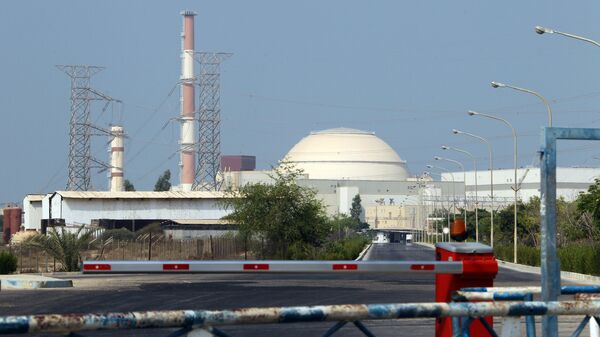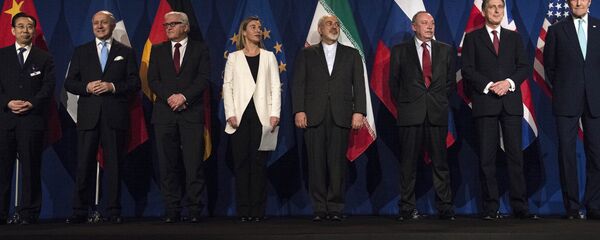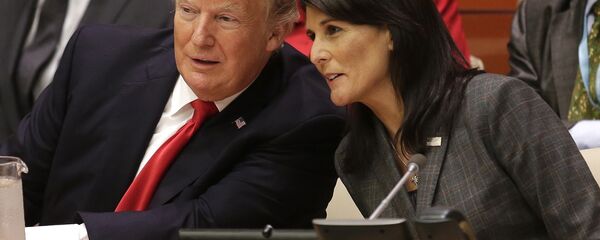WASHINGTON (Sputnik) — President Donald Trump’s stubborn diplomatic pressure on Tehran to renegotiate the nuclear deal is only empowering reactionary elements inside Iran and disrupting the country’s ideological balance, analysts told Sputnik.
Trump, in his first speech to the UN General Assembly last week, called the 2015 nuclear accord, known as the Joint Comprehensive Plan of Action (JCPOA), an "embarrassment" and one of the worst deals the United States had ever entered.
And on September 20, US Ambassador to the UN Nikki Haley told ABC's "Good Morning America" that Trump firmly believes Iran was violating the accord by carrying out ballistic missile testing and providing support to terrorists.
Iran's Reactionaries
US Academics for Peace Executive Director and Conscience International President James Jennings told Sputnik that Trump did not appear to anticipate the possible responses his hostile moves would promote in Tehran.
Trump most likely was not seeking to deliberately provoke a full-scale war with Iran but imagined that his threats and bluster would force the Tehran government to agree to renegotiate the 2015 agreement, Jennings explained.
"It is part of Trump´s technique. He is merely following the method laid out in his book, ‘The Art of the Deal.’ He is most likely trying to get new concessions from Iran, which would please Israel and give him a prestigious ‘win,’" he said.
However, even the leadership of the US armed forces opposed Trump’s efforts to scrap the 2015 agreement.
"The Pentagon will resist changing it [the nuclear accord] at this point because it would complicate their mission. There is no clear violation, even if it is claimed by [Israeli Prime Minister Benjamin] Netanyahu`s minions in the Congress," he said.
The best hope of moderating Trump’s determination to confront Tehran lay in the possible moderating influence of the former senior military officers that he had surrounded himself with, Jennings suggested.
White House Rivalry
Author and historian Reese Erlich told Sputnik that while there was serious debate in the Trump administration about how to deal with Iran, all the different competing factions agreed in their determination to destroy the 2015 accord.
"There is fierce debate within the Trump administration on how to tactically respond to the nuclear accord. All factions oppose the accord, but some want to decertify US participation and openly abrogate the agreement," he pointed out.
"Others want to formally accept the agreement while undercutting it by passing new sanctions and pressuring international corporations not to invest in Iran," Erlich said. Either option is a serious violation of both US and international law and a blow to peace efforts in the region."
In July 2015, Iran, the European Union and the so-called P5+1 group of nations – the United States, the United Kingdom, Russia, China, France and Iran – signed the Joint Comprehensive Plan of Actions (JCPOA), which envisions gradual lifting of nuclear-related sanctions imposed on Tehran in exchange for assurances that its nuclear program would remain peaceful.




